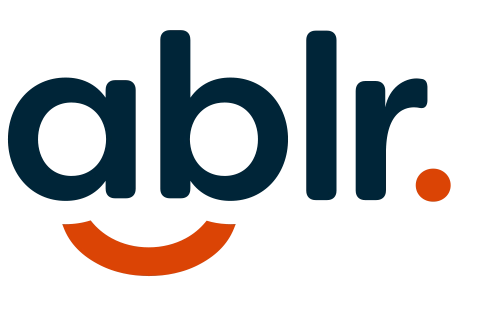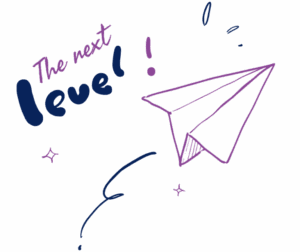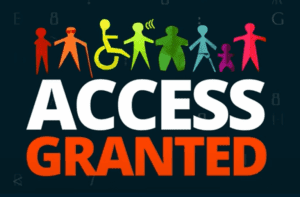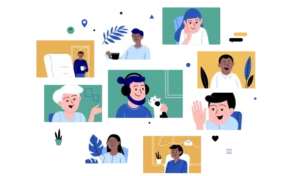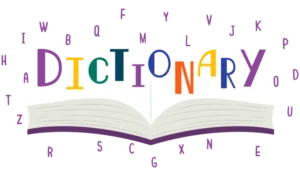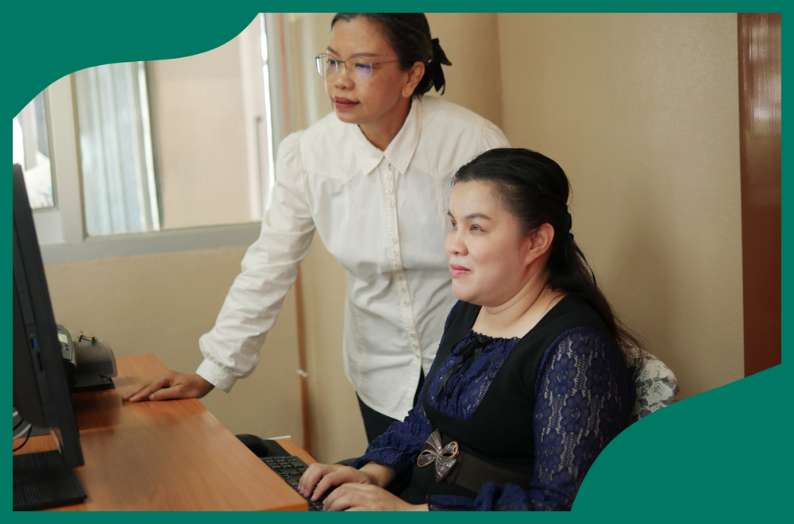Interviewing for a new job should be an inclusive and supportive experience—one where every candidate has the opportunity to show up with confidence and put forth their best self. That’s why requesting an accommodation during the interview process shouldn’t feel like a hurdle. Creating an environment where all candidates can fully participate benefits both job seekers and companies working to connect with the most qualified talent.
Whether you’re a job seeker unsure how to ask for what you need or you’re an employer trying to make your hiring process more inclusive, here’s what we wish more people knew about accessibility and interviewing.
For Job Seekers:
You Deserve an Accessible Interview Experience
Disclosing a disability or requesting accommodations can feel intimidating. We understand that firsthand. But we need to accept that accommodations aren’t special treatment. They’re essential tools that allow you to show up as your best self and focus on sharing your skills, experiences, strengths, and qualifications. As our Co-Founder John Samuel puts it, “If you need an accommodation, you have to ask for that, because if you don’t, you’re not going to be putting your best self forward.”
Common Interview Accommodations
If you’re new to the workforce or navigating your first interview since experiencing sight loss or acquiring a disability, you might be unfamiliar with what’s considered a reasonable accommodation. Here are a few examples of accommodations you may request:
- ASL Interpreter or Real-Time Captioning (CART): If you are Deaf or hard of hearing, you can request an American Sign Language (ASL) interpreter or CART services (Communication Access Realtime Translation) to ensure you can fully participate in the conversation.
- Extended Time or Alternative Formats for Written Tests: Some candidates may need more time to complete written portions of an interview—or may benefit from alternative formats, such as audio versions or simplified language, to demonstrate their skills more accurately.
- Screen Reader-Compatible Materials: If you use a screen reader, it’s important that digital materials like job descriptions, assessments, or onboarding documents are accessible. Formats like tagged PDFs, accessible Word files, or HTML versions may be necessary to navigate content effectively.
- Physical Accessibility or Remote Interview Options: If an in-person location isn’t accessible, it’s okay to request adjustments like ramp access, elevators, or to conduct the interview virtually instead. Flexibility in format ensures everyone can participate equally.
- Flexible Scheduling for Medical or Mental Health Needs: You might function better at certain times of day or need to avoid conflicts with medical treatments or mental health appointments. Asking for an interview time that works best for you is a reasonable and valid request.
If you’re not sure what’s available, ask. And if you know what works best for you, say it. Self-advocacy is powerful and it can open up so many opportunities. That’s why, at Ablr, we coach the candidates in our Ablr Workforce Development program on how to confidently request what they need to succeed.
For Employers:
Accessibility At Work Starts Before Day One
From the moment someone visits the careers page on your website, they’re forming an impression of your company. Is your application accessible with a screen reader? Do you clearly list the accommodations you provide for interviews? If not, you might be unintentionally closing the door on qualified candidates.
Best Practices for Conducting Accessible Interviews
1. List Available Accommodations on Your Website: When you name the accommodations you offer, you signal that your company values inclusion. Candidates shouldn’t have to wonder what accommodations are available or how to ask. Spell it out for them.
2. Train Front Desk Team to Ask Everyone: Our Co-Founder John Samuel says it best, “It’s not about singling out someone who uses a cane or a wheelchair. The majority of disabilities are invisible, so make it a best practice to ask everyone, ‘Is there anything we can provide to make this interview more accessible?’”
3. Centralize Your Accommodation Budget: If each department has to pay for accommodations out of their own budget, it creates a barrier. Centralizing the cost ensures equity and encourages managers to support every candidate without hesitation.
4. Treat Website Accessibility as a Priority: Your company website is your virtual front desk. If your job postings and main webpages aren’t accessible, some candidates won’t even get through the application stage. Accessibility here isn’t an accommodation; it’s the baseline for smart business.
Nervous to Disclose a Disability?
Disclosing a disability during the interview process, or deciding when to do so, can bring up a lot of emotions. Maybe you’re worried it could affect your chances of getting the job. Maybe you’re not sure what to say or when to say it. If you’re in that position, here are a few things to consider:
1. You are in control of your disclosure. You can share as much or as little as you want, and you can choose when. Some people disclose in the interview. Others wait until after a job offer is made. There’s no one right way.
2. Focus on what you need, not your diagnosis. You don’t have to go into medical details. Instead, focus on what reasonable accommodations would help you perform the job or complete the interview process.
3. Frame it around your strengths. For example, let them know you have reliable transportation, not that you don’t drive. Or that you use screen reader software to perform your work efficiently, not just that you have low vision.
4. It’s okay to feel nervous. Disclosing isn’t always easy, but remember, you deserve the opportunity to succeed on a level playing field. That’s what accommodations are for.
And if you’re not sure how to have that conversation, it can help to practice what you want to say in advance or roleplay with a trusted friend, coach, or mentor.
Your Next Step Toward Inclusive Hiring Starts Here
Conducting accessible interviews is a chance to build trust, equity, and belonging from the very beginning. Whether you’re a candidate or an employer, the goal is the same: to create an experience that allows people to show up and portray their skills and qualifications.
If you’re navigating the job market with a disability and wondering how to advocate for yourself, you’re not alone. And if you’re an employer looking to do better, the good news is, it’s absolutely doable. Want to make your hiring process more accessible? Let’s talk. At Ablr, we can help you accomplish that goal.
